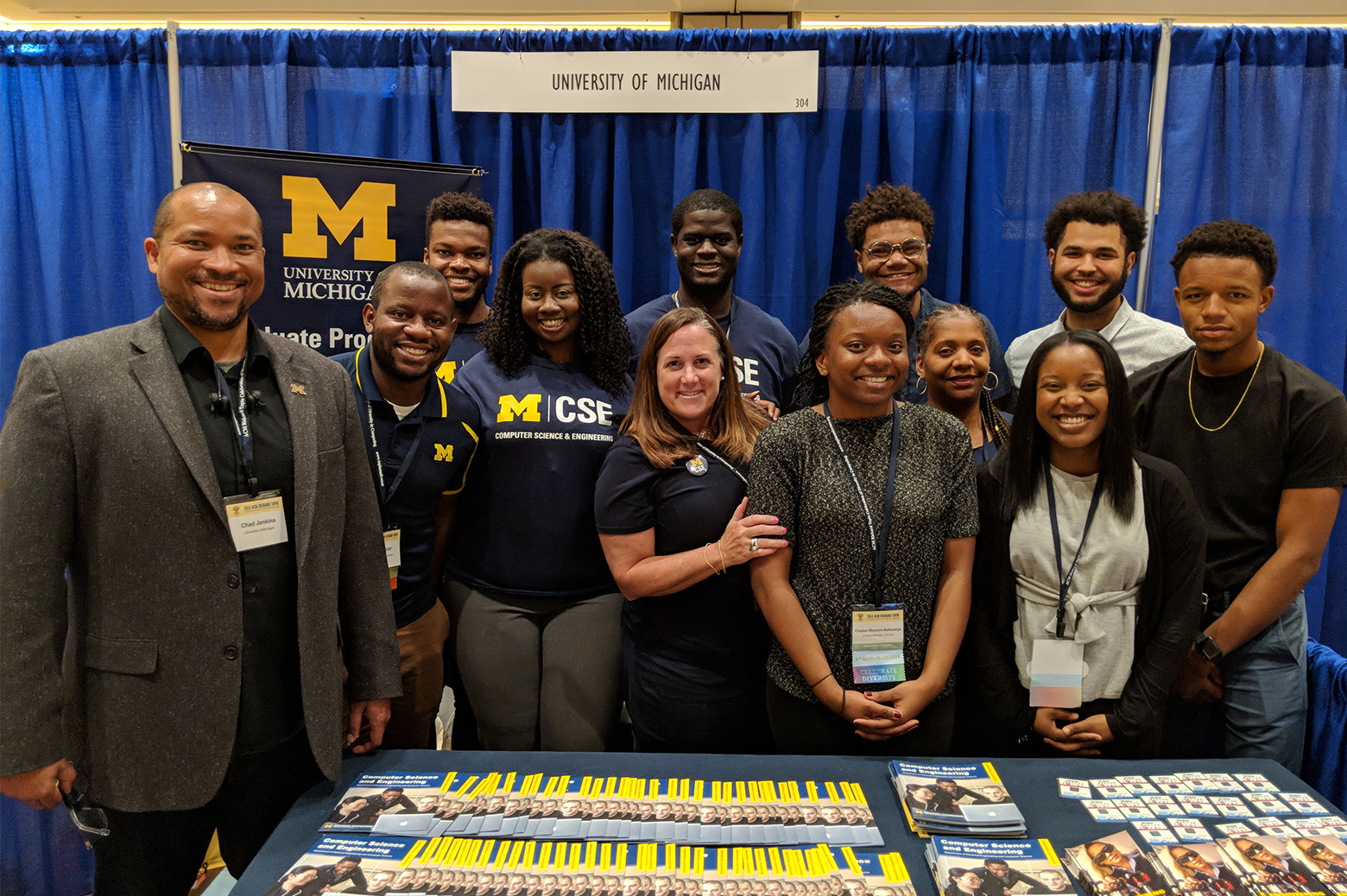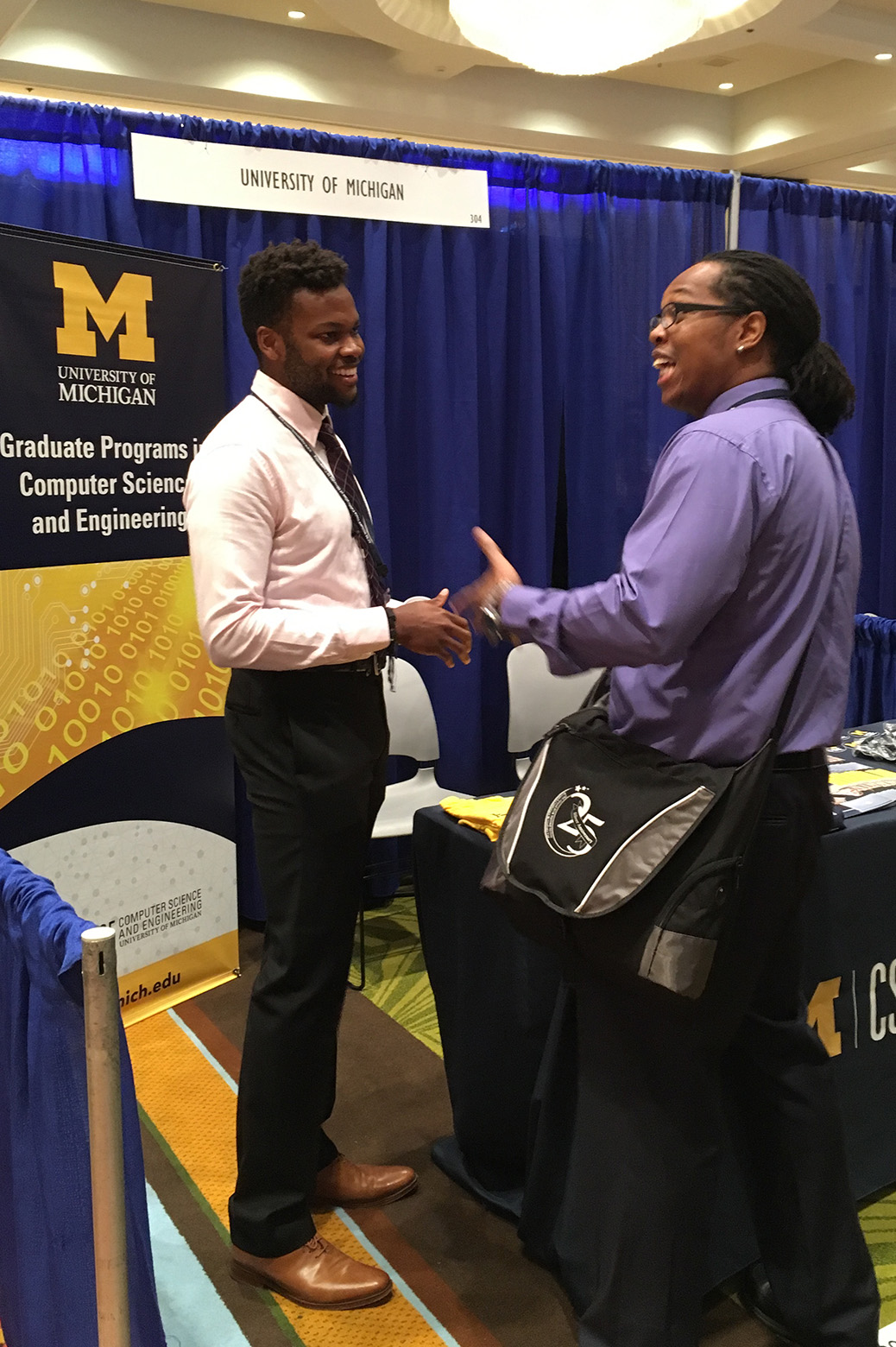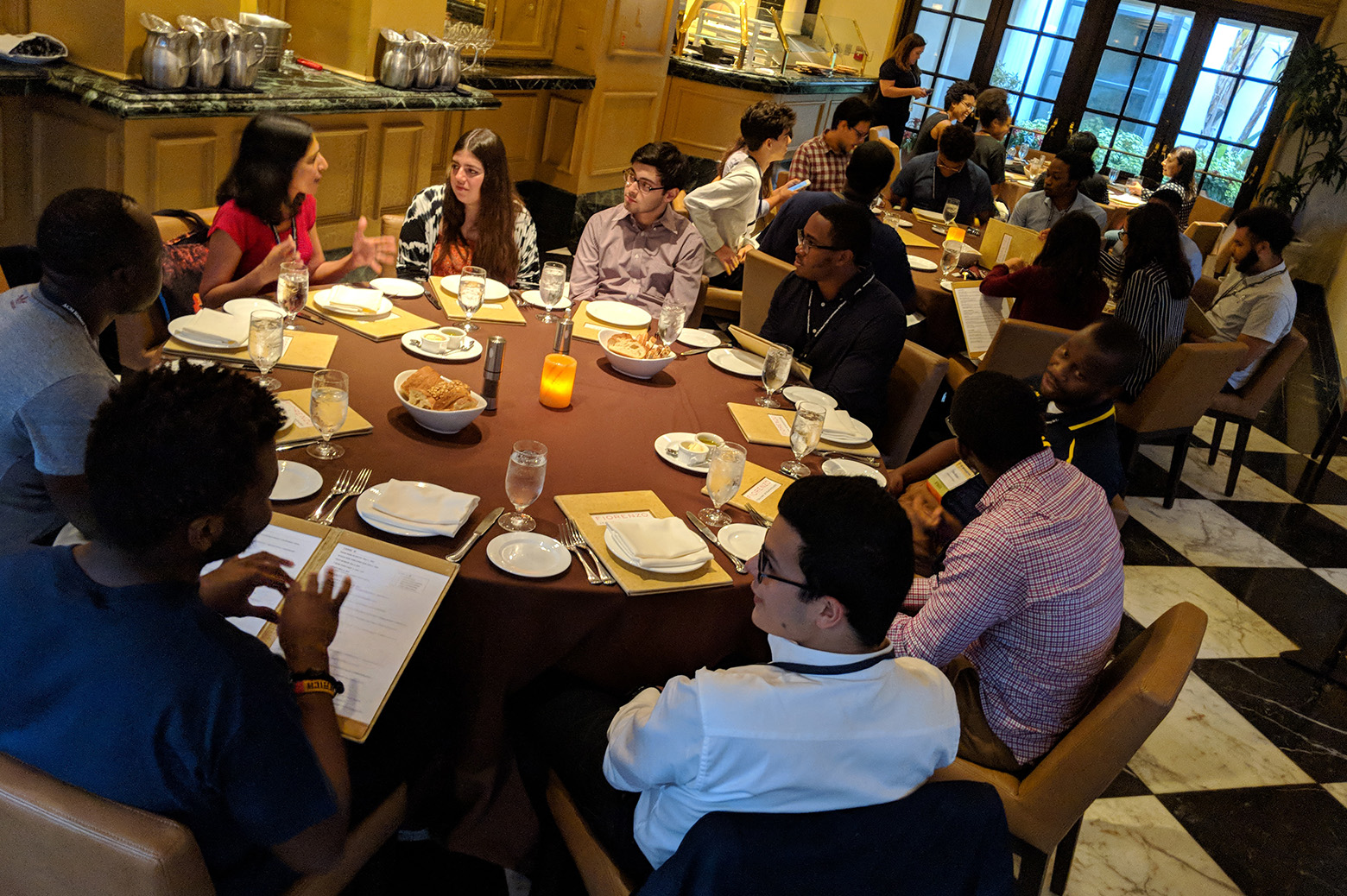Michigan CS makes waves at Tapia 2018
Eight students from CSE traveled to the conference this year, marking a new highpoint in attendance.

 Enlarge
Enlarge
Students in CSE got the chance to network and celebrate diversity in computing at the 2018 Richard Tapia Conference, which took place in Orlando, Florida on September 19 – 22. This year’s conference theme was “Diversity: Roots of Innovation,” acknowledging the historical role of diversity in STEM innovation and its essential role in innovating the future. CSE staff attended the conference’s exhibition hall as an event sponsor, and were able to connect with a number of students regarding programs of study in computer science and engineering at Michigan.
Eight students from CSE traveled to the conference this year, marking a new highpoint in attendance. This year’s attendees were Tutu Ajayi, Nathan Baker, Keaton Bonds, Akin Coffy, Joseph Nwabueze, Chalse Okorom, Lee Rutledge, and Kayla Williams.
The students were accompanied by Prof. Chad Jenkins, who worked with Akin Coffy to up this year’s attendance with the help of his new student organization for underrepresented minorities in CS. Jenkins strives to improve the state of diversity in computing and robotics with the goal of realizing equal opportunity for all. This is his fourth year leading students to participate in the Tapia Conference.

 Enlarge
Enlarge
“It has been great to see CSE establish a significant effort to broaden participation in computing,” Jenkins says. “The considerable presence of CSE at Tapia will surely reap benefits in Michigan’s global competitiveness. The big Block M was everywhere thanks to our students, alumni, staff, and faculty.”
This year, Jenkins established the first Michigan-Harvard dinner at the conference with Harvard professor Radhika Nagpal. The dinner gave the two institutions’ students insight into their differing experiences, as well as a chance to talk about the different ways they hope to enter the computing field.
“When people think of networking they think solely about companies,” says Coffy, “but it was really cool to get to meet other students who were pursuing very similar things to what we were.”
“It doesn’t hurt to talk with some great prospective graduate students and future faculty,” Jenkins adds.
Students in attendance valued the chance to connect with professionals from across the nation and across different industries. Coffy, a second-year student on his first trip to Tapia, was so focused on what he’d be doing at the event that he was shocked to see the diversity of the crowd when he arrived.
“It was so awesome going there and seeing all these diverse faces,” he says. “There’s not a singular demographic, not a majority demographic, everybody feels represented in their own right. Nobody feels left out.”

 Enlarge
Enlarge
The students sought out career connections with companies and schools from around the country, networked with other participants, met with leaders in industry, explored graduate school opportunities, and attended workshops relevant to their goals. Grad students in attendance got the chance to offer their experienced perspectives to the conference’s undergrads.
“As a more senior graduate student, the conference suited me a little differently,” says Tutu Ajayi. “I enjoyed interacting with the undergraduates exploring grad school options and was happy to tell them about life as a PhD Student at Michigan, and I still learned a lot myself.”
Coffy says that he hopes to see the trend of increased student attendance continue at Tapia and other conferences throughout the year. His organization, tentatively called MinoriTeas for their tea-time weekly meetings, works to make the trip easier and more affordable for the students with funding assistance. This year, the University supported the students with not only attendance and travel costs, but a food stipend for the week.
“This is the first time I’ve been flown out somewhere to attend a conference like this,” Coffy says. “We wanted to get more students to come to Tapia, but paying out of pocket was a big problem for a lot of students. The funding was a big motivation for me and the other students to go that might not have otherwise.”
This is CSE’s third year sending students to the conference. Grad student Lee Rutledge has attended every time, and the experience has motivated him to get involved with Jenkins and Coffy in developing the student org.
“There was a missing need for a community support system for minorities in computer science,” he says. “I knew people along my journey that switched out of computer science because they didn’t have the right support system. That was one of the beautiful things about the Tapia conference every year, seeing people from all over the world who look like you and are successful in the type of things that you’re doing.”
CSE Chair Brian Noble, who also attended the conference, plans to continue its support for attendees and presence at the exhibition hall. This year, the division was a platinum sponsor for the conference. Additional support for U-M students in attendance came from alumni donors Peter and Susan Lee.
CSE staff member Yolonda Coleman said that the booth had a frenetic energy as graduate students, faculty, and staff from the CSE division answered questions posed by enthusiastic attendees. She was especially pleased to reunite with Prof. Kyla McMullen, the first African-American woman to graduate from the CSE doctoral program. CSE Graduate Coordinator Ashley Andreae concluded, “All in all, it was a huge success!”